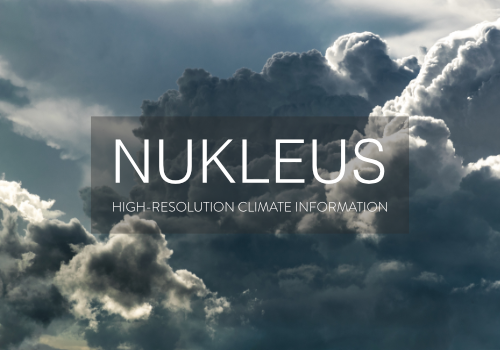NUKLEUS 2
Actionable local climate information for Germany | Duration Time: 01/06/2023 - 31/05/2026
 |
The joint project "Actionable Local Climate Information for Germany (NUKLEUS)" is one of two cross-sectional projects of the funding measure RegIKlim. The central task of the cross-sectional projects WIRKsam and NUKLEUS is the conceptual design and development of a climate register. NUKLEUS will primarily carry out the work on the backend of the climate register. Besides the provision of climate data, the evaluation and quality assurance of the underlying climate simulations, including the bandwidths and uncertainties in comparison with the global and the emerging European CMIP6 ensembles, is central. The data itself will be made available via the data and analysis portal “Free Evaluation System Framework” (Freva). |
|---|---|
|
|
|
The research results and data products from NUKLEUS2 form the basis for the services and products of the model regions. A central component of the exploitation plan is the prototype climate cadastre. Part of the cadastre will be, among other things, the guidelines and documentation of the products, which can be used beyond the project. All planned extensions of the Freva system can also be used in other projects and institutions that use the Freva system (e.g. in the BMBF projects ClimXtreme and WarmWorld or at the DWD). This includes in particular the Freva plug-ins, which have the potential of great added value for all users of these systems, as they lead to standardisation and thus comparability, e.g. in the use of certain impact models across different projects. The data and analyses will also play an important role for other research projects up to international synthesis reports such as IPCC. In particular, the WCRP CORDEX activities on CMIP6 downscaling and the FPS URB-RCC (URBan environments and Regional Climate Change) initiative should be mentioned here. |
|
|
|
|||
|---|---|---|---|---|
|
Center for International Development and Environmental Research (ZEU) Justus-Liebig-University, Giessen (Germany) Department of Geography
World Meteorological Organization (WMO) |
Research Assistant at the ZEU Justus-Liebig-University, Giessen |
|||
|
This project is generously funded as part of the FONA framework programme of the Federal Ministry of Education and Research (BMBF). |
|||

